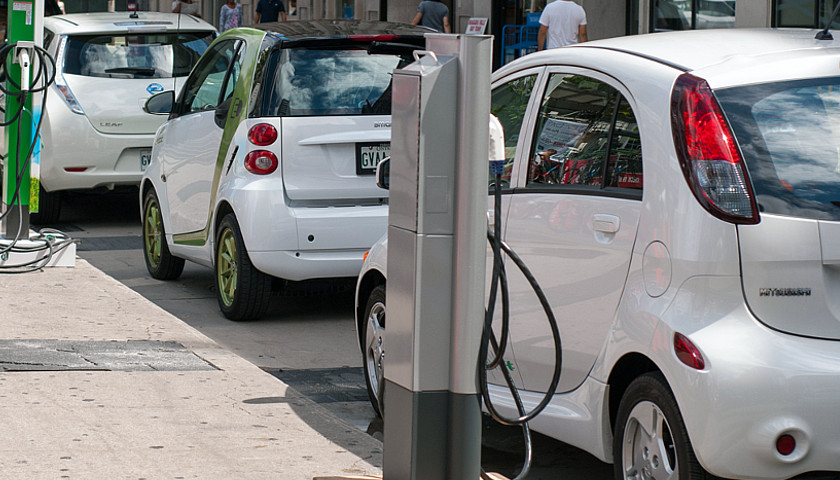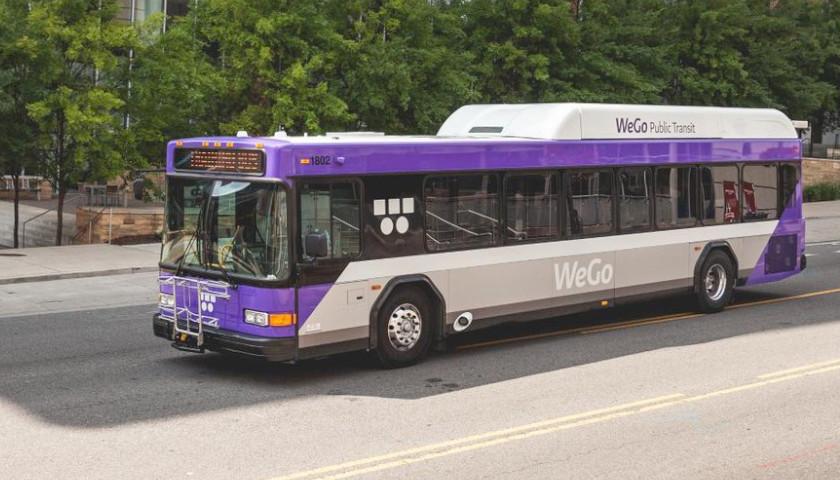Prior research shows people in Nashville seldom use taxpayer-funded charging stations for electric cars, yet certain members of the U.S. Senate want to throw even more money on these devices nationwide.
This, according to David Williams, president of the Washington, D.C.-based Taxpayers Protection Alliance.
Members of the TPA, according to the group’s website, analyze the government’s effects on the economy.
“You are giving handouts to companies to build these stations that basically have no worry whether the market needs them or not. There is no risk for a company to build these,” Williams told The Tennessee Star Monday.
“When a company builds a charging station to expand their business then any sort of subsidy from the government or from taxpayers is corporate welfare. They should make business decisions based upon what the market wants — and not just because they got a ton of money from Congress.”
According to the TPA’s weekly newsletter, U.S. senators have introduced “a legislative smorgasbord of failed transportation ideas and costly ‘renewable’ pipedreams.”
These senators include Republicans John Barrasso of Wyoming and Shelly Moore Capito of West Virginia along with Democrats Tom Carper of Delaware and Ben Cardin of Maryland.
“One of the most disappointing ideas (that’s a high bar) is a plan supported by Sen. Barrasso to use taxpayer subsidies to fund electric vehicle (EV) charging stations,” according to the TPA’s newsletter.
“Sen. Barrasso has been a leader in trying to get rid of EV subsidies so it is odd that he would support subsidizing the charging infrastructure.”
America’s Transportation Infrastructure Act of 2019 would green-light $287 billion to transfer from the Highway Trust Fund over five years to finance road and bridge improvements, according to the TPA.
Of this sum, $3 billion is set aside for new funding distributed to states based on their current formula share to support projects that would lower highway-related carbon emissions. An additional $1 billion is slated for states and localities to build hydrogen, natural gas, and electric vehicle fueling infrastructure along designated highway corridors that lack such infrastructure, the newsletter went on to say.
“Since 2010, federal taxpayers have subsidized the purchase of each EV purchase across the country for up to $7,500 per vehicle. This policy primarily benefits wealthy Americans purchasing vehicles that are at a minimum 15 percent more expensive than comparable conventional cars,” according to the TPA’s newsletter.
“In a February 2018 report, Pacific Research Institute senior fellow Dr. Wayne Winegarden found that, ‘79 percent of electric vehicle plug-in tax credits were claimed by households with adjusted gross incomes of greater than $100,000 per year.’ Now this credit is finally phasing out; the maximum obtainable credit from Uncle Sam is currently $1,875 and will zero out at the end of 2019.”
In 2013 and 2015, Tennessee Watchdog found that taxpayer-funded charging stations in Nashville were seldom used. Documents from the U.S. Department of Energy made similar conclusions. Nationwide, 10,300 of the nearly 17,000 chargers at the time — 60 percent — were for residential use. Documents show more than 85 percent of people charge their electric cars at home instead of in public.
Also as reported in 2015, Tennessee officials in the fall spent $181,250 to place three charging stations at the Nashville International Airport. In five weeks, 29 cars were charged for a flat fee of $2 each. At that rate, the charging stations would pay for themselves in about 300 years.
The Tennessee Department of Environment and Conservation provided that money.
– – –
Chris Butler is an investigative journalist at The Tennessee Star. Follow Chris on Facebook. Email tips to [email protected].





